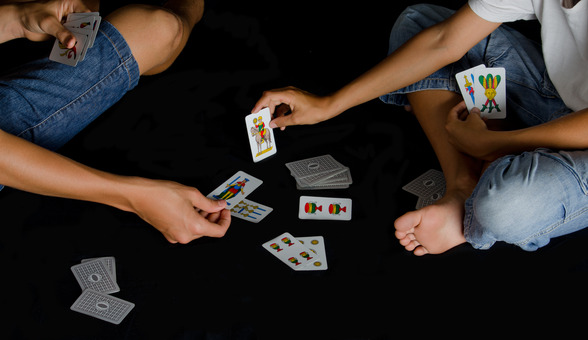
Playing cards is not just for adults. Kids also enjoy and actually benefit from this activity with a myriad of cognitive and social advantages. Once parents understand what they are, this will become a regularly scheduled family time. Quality time does not look the way it used to with the advent of 21st-century technology. Turning off the electronics for some old-fashioned card games will spark a renewed family connection. Here are four reasons why playing cards should become a fixture in your family culture.
Competition
Sports are just one way for children to learn competitiveness. In fact, playing cards teaches this skill in spades. While the pun is applicable, the point is more profound. Playing card games requires timing and cunning mixed with diligence. To quote a famous song, they will “know when to hold ‘em and know when to fold ‘em.” They will learn how to win graciously as well as lose with integrity. A caveat is learning anger management because competition can breed this emotion when you lose.
Confidence
Winners and even losers build confidence with card playing. The win gives your child a sense of accomplishment. While on the other hand, losing can foster thoughts of ways to come out on top the next time. Games that challenge reasoning and memory skills on a variety of levels promote self-efficacy. This is crucial for children to feel good about themselves. Rotate who will keep score as a way to incorporate accountability and responsibility. These are both important social skills to expose children to so they learn the concept of taking responsibility for their own success. With confidence in place, self-esteem begins to grow with each successful win.
Memory
Uno, Go Fish, and Crazy 8s are perfect examples of card games that children excel in. Beyond this, they will be engaged in the process without realizing they are building cognitive muscles. This is important for grasping concepts across the broad content landscape. In addition, memory is bolstered at levels higher than the rote scale. This translates into an increase in learning a new language and information, problem-solving, and speech. These are all cornerstones that must be developed for life-long learning.
Math
One of the toughest subjects for the majority of children is math. The complexity needed to master strategies has several layers. Introducing skill sets that will enable children to think critically in an orderly fashion is essential. Cards games do just that. As they play, visual constructs are created in the brain that leaves familiar pathways for similar activities they will encounter later. There are three learning styles and 11 learning intelligence that playing cards tap into. Repeating this activity on a regular basis will strengthen these skills.
Take advantage of the plethora of benefits card-playing has to offer your child and your family. Raising a well-rounded individual requires flexibility and inventiveness. Whether your child is a visual, auditory, or kinesthetic learner, this undertaking will tap in and enhance them. If there is a silver bullet with a gun powder mixture for boosting confidence and more, playing cards would be included.
